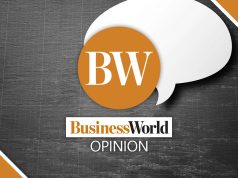Sewing tapped to steer Deutsche Bank through chaos
THE ERA of investment bankers calling the shots at Deutsche Bank appears to be over.
Christian Sewing — a three-decade veteran of the Frankfurt-based lender and retail banking executive — was named to succeed to Briton John Cryan after a meeting of the bank’s supervisory board late Sunday. The decision ended a dramatic few weeks of turmoil at Europe’s largest investment bank as Cryan fought for his position and Chairman Paul Achleitner quietly approached potential replacements.
Sewing’s ascent marks the return of a German national as sole CEO for the first time in 16 years. As part of the overhaul, Garth Ritchie will lead the investment bank — which remains at the core of the bank’s problems — and was elevated to co-deputy CEO with Chief Administrative Officer Karl von Rohr.
At first glance, Sewing, 47, seems chosen to complete the task that outgoing CEO Cryan began but failed to complete quickly enough — that of shrinking Deutsche’s investment bank and making a coherent whole out of its domestic retail and commercial operations. In an interview earlier this year, he had sided with Cryan, saying that “the basic direction the bank is taking is the right one. We shouldn’t play around with the strategy.”
Having joined Deutsche as an apprentice in the homely Westphalian town of Bielefeld, Sewing marks a contrast with globe-trotters such as former CEOs Josef Ackermann and Anshu Jain. He’s worked most of his life at Deutsche Bank — except for a two-year stint at a smaller lender — and commutes back to his wife and four children in Osnabrueck on weekends, more than 200 miles away from the German financial capital.
BURNISHED STANDING
Sewing burnished his standing within the bank in recent years by managing the downsizing of its domestic operations, and by curtailing the excesses of its investment bankers. He notably cut 188 branches and about 4,000 jobs from the German retail unit without provoking a strong backlash from German media, for whom Deutsche is a favorite punching-bag.
Sewing also took charge of the internal probe into alleged money-laundering at Deutsche’s Russian business, prompting the bank to shutter its securities unit there, with over 1,000 employees.
In recent weeks, Achleitner had intensified his search for a new CEO, looking for a leader who speaks German and works well with regulators, people familiar with the matter said. That opened the way for internal candidates Sewing, co-deputy CEO Marcus Schenck and Chief Financial Officer James von Moltke. But it didn’t stop the bank and its backers sounding out external ones including Bank of America Corp.’s Christian Meissner and ex-JPMorgan Chase & Co. executive Matt Zames, people familiar with the matter said last week.
“Sewing may not necessarily have been the top candidate, but he was there and stood ready,” Hans-Peter Burghof, a banking and finance professor at the University of Hohenheim in Stuttgart, Germany, said by phone. “It is too early to say what strategy Sewing would pursue because it depends on the bank’s big investors as well. Several of them are quite keen on investment banking and see it offering a better chance to return to profit than retail banking.”
Sewing’s promotion raises big questions over the future of Deutsche’s investment bank, the source of most of its profits, but also of its most expensive governance scandals. The bank had to pay $7.2 billion last year to settle a US Justice Department probe into its mis-selling of mortgage-backed securities before the financial crisis, and it has also incurred heavy fines for manipulating benchmark interest rates and lax anti-money laundering controls in Russia.
Having been pipped by Sewing to the top job, Schenck will now leave the bank, making way for Ritchie to take over at the head of the division which the company has been considering scaling back.
CRUCIAL ROLE
Ritchie joined Deutsche 22 years ago, working his way up to co-head of equities a decade ago. Generally media-shy, he played a crucial role liaising with clients and regulators during the bank’s crisis of confidence in late 2016, when the prospect of heavy US fines briefly appeared to threaten Deutsche’s viability (and prompted his father in Johannesburg to call to ask him if he still had a job). Ritchie’s firefighting at that time made a lasting impression on Achleitner, according to a person with knowledge of the matter.
Speaking on the bank’s pre-crisis expansion in an interview last year, Ritchie admitted the rapid growth is still hurting the bank. “We grew very fast with mercenaries and acquired teams, and they grew banks within banks,” he said. “Our biggest mistake was not putting those teams together.”
However, one of the great cultural conflicts that undermined Cryan’s final days seems unlikely to go away with Ritchie’s promotion: Ritchie had supported Schenck’s push for bigger bonus payouts to investment bank staff for 2017.
Von Rohr, who alongside Ritchie was named co-deputy CEO, moved up under Cryan in 2015, becoming chief administrative officer with management board responsibility for corporate governance, human resources and legal. He also became the bank’s labor relations director.
Investors gave a muted reaction to Sewing’s appointment. One top-five shareholder described him as an “OK” choice that they wouldn’t oppose. A second said Sewing will be good for the bank but added that the appointment showed Achleitner wasn’t able to find a better external candidate. Those who fret about his relatively low profile outside Germany overlook his stints in Singapore, Hong Kong, London and Toronto, a person close to Sewing said, noting that his role as deputy chief risk officer exposed him, with a high degree of authority, to all areas of the business. — Bloomberg



